
AlphaLISA Mouse & Rat IL-17A Detection Kit, 5,000 Assay Points
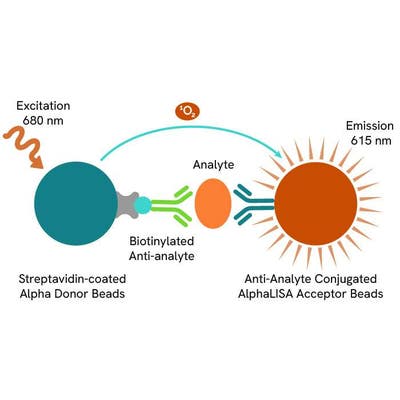

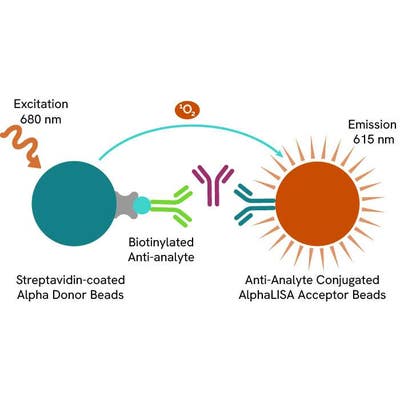 View All
View All
AlphaLISA Mouse & Rat IL-17A Detection Kit, 5,000 Assay Points
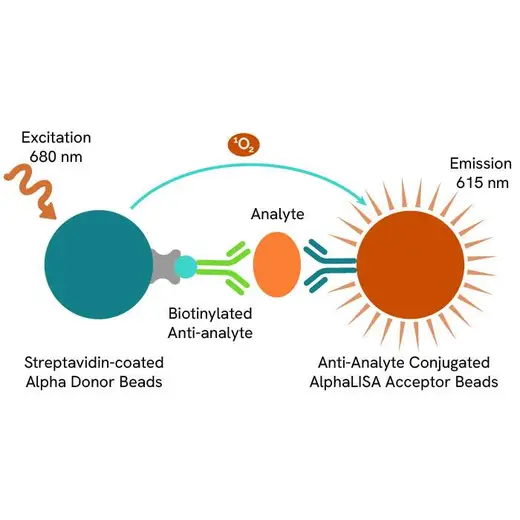

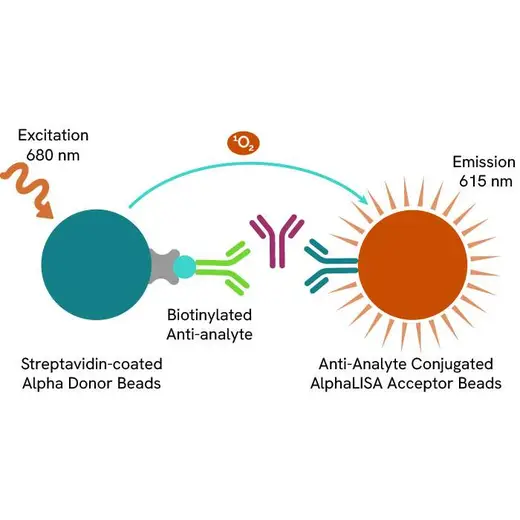




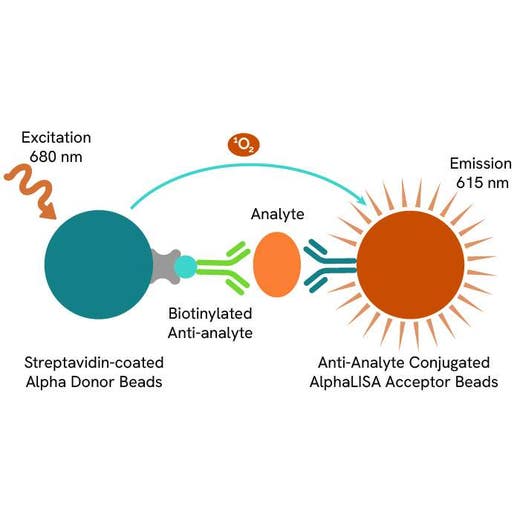

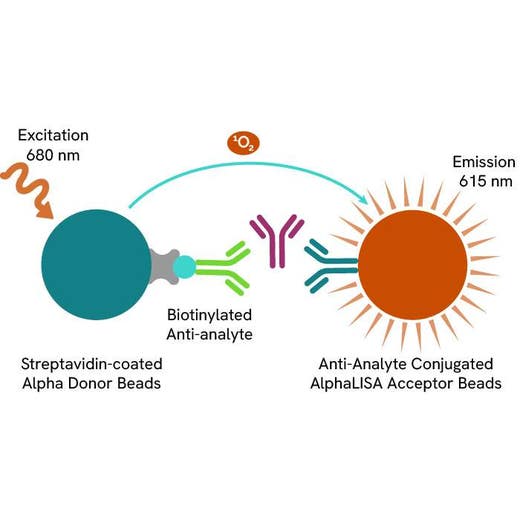




The AlphaLISA™ Mouse/Rat Interleukin-17 (IL-17A) Detection Kit is designed for detection and quantitation of mouse or rat IL-17A in buffered solution, or cell culture medium in a homogeneous (no-wash steps, no separation steps) assay.
This product replaces AL514.
For research use only. Not for use in diagnostic procedures. All products to be used in accordance with applicable laws and regulations including without limitation, consumption and disposal requirements under European REACH regulations (EC 1907/2006).
| Feature | Specification |
|---|---|
| Application | Protein Quantification |
| Dynamic Range | 4.1 - 100,000 pg/mL |
| Limit of Detection | 4.1 pg/mL |
| Sample Volume | 5 µL |
The AlphaLISA™ Mouse/Rat Interleukin-17 (IL-17A) Detection Kit is designed for detection and quantitation of mouse or rat IL-17A in buffered solution, or cell culture medium in a homogeneous (no-wash steps, no separation steps) assay.
This product replaces AL514.
For research use only. Not for use in diagnostic procedures. All products to be used in accordance with applicable laws and regulations including without limitation, consumption and disposal requirements under European REACH regulations (EC 1907/2006).







AlphaLISA Mouse & Rat IL-17A Detection Kit, 5,000 Assay Points







AlphaLISA Mouse & Rat IL-17A Detection Kit, 5,000 Assay Points







Product information
Overview
Formats:
- Our 500 assay point kit allows you to run 500 wells in 96-well or 384-well format, using a 50 μL reaction volume (5 μL of sample).
- Our 5,000 assay point kit allows you to run 5,000 wells in 96-well or 384-well format, using a 50 μL reaction volume (5 μL of sample).
Features:
- No-wash steps, no separation steps
- ELISA alternative technology
- Sensitive detection
- Broad sample compatibility
- Small sample volume
- Results in less than 3 hours
- Half the time of an ELISA assay
Interleukin 17A (IL-17A) is the founding member of a group of cytokines called the IL-17 family. The other members are IL-17B, C, D, E, and F. Mature mouse or rat IL-17A is a glycosylated homodimer formed of two 133 amino acid subunits. IL17A is produced by a subset of T helper cells. It is a proinflammatory cytokine that enhances T cell priming and stimulates macrophages, fibroblasts, endothelial and epithelial cells to produce mediators of inflammation like IL-1, IL-6, and TNFα. It is also critical for neutrophil activation and migration, and induces IL-8, a key chemokine for neutrophils. IL-17 has been involved in the proinflammatory patterns associated with joint inflammation and rheumatoid arthritis in mouse and human models and may be a novel therapeutic target for the treatment of these diseases.
AlphaLISA™ technology allows the detection of molecules of interest in a no-wash, highly sensitive, quantitative assay. In an AlphaLISA assay, a biotinylated anti-analyte antibody binds to the Streptavidin-coated Donor beads while another anti-analyte antibody is conjugated to AlphaLISA Acceptor beads. In the presence of the analyte, the beads come into close proximity. The excitation of the Donor beads causes the release of singlet oxygen molecules that triggers a cascade of energy transfer in the Acceptor beads, resulting in a sharp peak of light emission at 615 nm.
Specifications
| Application |
Protein Quantification
|
|---|---|
| Automation Compatible |
Yes
|
| Brand |
AlphaLISA
|
| Detection Modality |
Alpha
|
| Dynamic Range |
4.1 - 100,000 pg/mL
|
| Limit of Detection |
4.1 pg/mL
|
| Product Group |
Kit
|
| Sample Volume |
5 µL
|
| Shipping Conditions |
Shipped in Blue Ice
|
| Target |
IL-17A
|
| Target Class |
Cytokines
|
| Target Species |
Mouse
Rat
|
| Technology |
Alpha
|
| Therapeutic Area |
Autoimmunity
Inflammation
|
| Unit Size |
5,000 Assay Points
|
Image gallery






AlphaLISA Mouse & Rat IL-17A Detection Kit, 5,000 Assay Points






AlphaLISA Mouse & Rat IL-17A Detection Kit, 5,000 Assay Points






Video gallery

AlphaLISA Mouse & Rat IL-17A Detection Kit, 5,000 Assay Points

AlphaLISA Mouse & Rat IL-17A Detection Kit, 5,000 Assay Points

Resources
Are you looking for resources, click on the resource type to explore further.
Emerging pathways to neuroinflammation and neurodegeneration
Neurodegenerative diseases, such as amyotrophic lateral sclerosis...


How can we help you?
We are here to answer your questions.






























